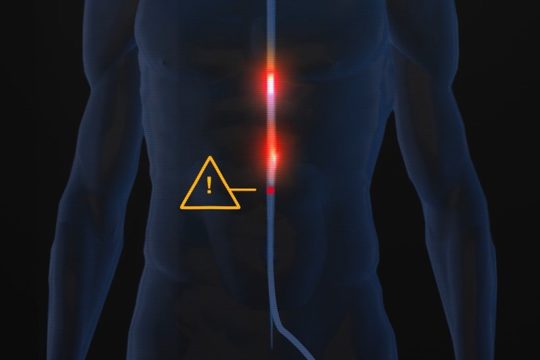Department of Neurosurgery
New Generation of Intelligent Bio-Interfaces Could Overcome Aspects of Spinal Cord Injury
 “In related research, DARPA recently began funding Brown University to develop a direct spinal cord interface that marries implanted electrodes with machine learning to potentially restore lower-limb motor and sensory control and proprioception to individuals living with paraplegia. The planned two-year study — led by Dr. David Borton and stemming from a proposal in response to BTO’s office-wide broad agency announcement — involves the development of high-density electrodes that wrap around the spinal cord and are capable of recording and stimulation. The team will also attempt to create novel algorithms that mimic natural processes in the spinal cord…
“In related research, DARPA recently began funding Brown University to develop a direct spinal cord interface that marries implanted electrodes with machine learning to potentially restore lower-limb motor and sensory control and proprioception to individuals living with paraplegia. The planned two-year study — led by Dr. David Borton and stemming from a proposal in response to BTO’s office-wide broad agency announcement — involves the development of high-density electrodes that wrap around the spinal cord and are capable of recording and stimulation. The team will also attempt to create novel algorithms that mimic natural processes in the spinal cord…
DARPA has scheduled in-patient demonstrations at the end of each year of the Brown study to demonstrate proof of concept. At the end of the first year, the researchers will work with volunteers living with paraplegia to test a percutaneous interface system with the goal of restoring movement and sensation. By the end of the second year, the researchers plan to test a fully implanted system…”
Read the Full Story: New Generation of Intelligent Bio-Interfaces Could Overcome Aspects of Spinal Cord Injury
Featured


